I’m taking Christmas week off and rerunning old posts that I think people should reread.
A properly planned vegetarian or vegan diet can be as healthy as other diets; in fact, it may be healthier than the standard American diet, because there are a bunch of desserts you can’t eat. However, some effective altruists have gone vegetarian or vegan without learning about the special nutritional concerns of vegans and vegetarians. (See Elizabeth Van Nostrand’s writing about veganism in effective altruism for more.)
All of the facts here come from the excellent veganhealth.org, which dives more into the studies. But my article is more opinionated and shorter!
My advice is for vegans and vegetarians without other dietary restrictions. If you have dietary restrictions for health reasons, a very limited diet due to sensory sensitivities, or similar, please consult a dietitian before going vegan or vegetarian. If you are vegetarian or vegan, I strongly recommend against having other dietary restrictions (e.g. paleo, keto, macrobiotic) for generic health or weight loss reasons, rather than to treat a particular condition. The more restricted your diet is, the more difficult it is to get enough nutrients.
Milk is the lowest-suffering-per-kilogram animal product; it is also rich in many nutrients of concern for vegans. I encourage vegans to consider switching to lacto vegetarianism.
I have ranked the list in order of my subjective view of the Importance, Neglectedness, and Tractability of each nutrient.
VITAMIN B12: You CANNOT get an adequate supply of B12 from an unsupplemented vegan diet. CANNOT CANNOT CANNOT.1 If you take one lesson home from this blog post it is that you MUST SUPPLEMENT B12 IF YOU ARE VEGAN.
B12 deficiency is terrifying. B12 is stored in the body, so most people have an adequate supply of B12 when they become vegan—a supply that will last for many years. Even at an early stage, too early to notice, B12 deficiency increases your risk of cognitive decline, cardiovascular disease, and early death. Over time, a person who doesn’t eat enough B12 will develop vague, nonspecific symptoms: fatigue, loss of appetite, loss of menstruation, depression, infertility, frequent colds. Eventually, your hands and feet will start to tingle: this is a sign of nerve damage. If you continue to be deficient, you will develop other worrying symptoms, such as hallucinations, paranoia, blurred vision, and abnormal gait. If you somehow continue to not take your B12 vitamins, you may become blind, deaf, or paralyzed, or get dementia. The effects of B12 deficiency that has progressed to this stage are permanent and impossible to cure.
Do not let this happen to you. Take a B12 supplement, aiming for an average of 100 µg daily. Chew it to help absorption. Store your B12 in a dark cool place, preferably your fridge. If you have been vegan for more than a few months without taking a daily B12 supplement, take 2,000 µg once a day for 2 weeks to rebuild your supply. If you are vegan, don’t take B12, and have any symptoms of B12 deficiency, go see a doctor.
Clams are a good source of B12 and many vegans consider them to be a sort of “meat plant.” Milk and Red Bull are also rich in B12. Fortified cereals can also help maintain an adequate supply of B12; check the box to see if your cereal is meeting your needs. If on an average day you eat ten clams, two glasses of milk, half a Red Bull, or an amount of cereal which provides 100% of RDA according to the box, you probably have adequate B12. However, if I were you I would supplement B12 just for peace of mind.
OMEGA-3s: Omega-3s exist in a bunch of random foods that people in the Anglosphere generally don’t eat regularly. (Chia seeds? Flaxseed oil? English walnuts?) Soy products can help meet your daily needs, but you’ll need to eat kind of a lot of soy. I suggest a daily supplement. Vegan supplements are available.
VITAMIN A: If you eat five servings of vegetables and fruit a day, you will probably get enough vitamin A, even as a vegetarian. If you don’t, eat pumpkin, carrots, sweet potato, butternut squash, or cantaloupe. The easiest way to meet your RDA is probably to have a daily snack of carrots: six to ten baby carrots, or one and a half medium carrots, will meet your vitamin A needs. (May I suggest dipping your carrots in hummus to meet your protein needs at the same time?)
PROTEIN: Vegetarian diets are most likely to be deficient in the amino acid lysine. To get adequate lysine, you should aim to eat one serving of a lysine-rich food with each meal. Lysine-rich foods include beans, soy products, Impossible and Beyond meat, seitan, quinoa, peanuts, pistachios, and pumpkin seeds. A serving is about four ounces (100 grams) of beans, soy, Impossible/Beyond meat, or seitan; about eight ounces (200 grams) of quinoa; or about three quarters of an ounce (75 grams) of peanuts, pistachios, or pumpkin seeds. To meet your protein needs, you can also have a glass of milk with your meal.
CALCIUM: Aim for two cups of calcium-rich food daily. The easiest way to get your calcium is through calcium-fortified nondairy milk or orange juice (ALWAYS buy calcium-fortified). You can also eat tofu made with calcium salts or the following dark leafy greens: turnip greens, mustard greens, kale, bok choy, and collard greens. Or drink milk.
VITAMIN D: The easiest way to get vitamin D is to spend 15 minutes (light-skinned people) or 20 minutes (dark-skinned people) outside in the sun daily between 10pm and 2pm. If you live in a cloudy area or an area with bad winters, or wear sunscreen when you’re outside, you should take a vitamin D supplement. Or drink milk.
IRON: The usual advice is that iron is not a concern for many vegans and vegetarians—only athletes, pregnant people, and people who breastfeed or regularly menstruate need to be concerned. However, Elizabeth Van Nostrand has found iron deficiency among cis male vegans. If you are vegetarian and crave eating ice, you are almost certainly iron-deficient. If you are deficient, take a good source of vitamin C with each meal to help absorption: oranges, strawberries, and yellow peppers are good sources. Avoid calcium supplements and tea within an hour of eating. Normal calcium in food is fine; I don’t know about calcium-fortified orange juice. Consider taking an iron supplement, but only once you’ve been tested; too much iron is also bad for you.
IODINE: Use iodized salt or drink milk.
SELENIUM: Plants grown in selenium-rich soil have selenium. Americans and Canadians get enough selenium, but Europeans may suffer from selenium deficiency, especially if they eat local food. Supplement, or eat a handful of Brazil nuts once a week.
OTHER RANDOM SHIT: Any dietary restriction increases the risk that you will have some idiosyncratic deficiency. If you have weird symptoms, or any of the standard nonspecific Body Not Work Good symptoms (depression, anxiety, fatigue, pain, insomnia, infertility, no appetite, loss of menstruation, constant minor illnesses, headaches, etc.), get yourself to a doctor and get tested for nutritional deficiencies.
I know this can seem overwhelming. But many of the changes are simple. In time, it’ll all become part of your routine: morning supplements, lunchtime walk in the sun, afternoon snack of carrots and calcium-fortified orange juice, a big serving of lentils with dinner. This will just become the way you eat. And by eating lots of vegetables, fruit, and beans, you can wind up with a healthier diet than the average American.
—
A person in Elizabeth Van Nostrand’s comment section said that people learn about vegan nutrition from memes. Given the number of you with shit diets, we are clearly suffering from a critical meme deficiency in the effective altruist community. I present a handful of memes for your approval. Thanks to Lindsey, Blazer, Wolffy, and Alicorn for their meme contributions.
Post your own memes in the comments! If there are a lot I might do another post rounding up my favorites.
Unless you happen to really like B12-fortified cereal. Or Red Bull, three or four Red Bulls a week have you covered.
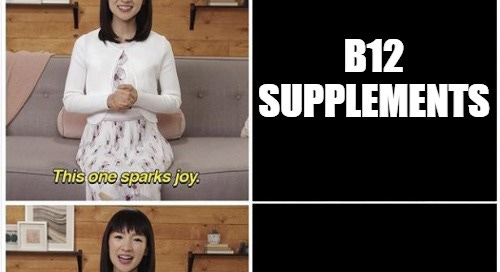



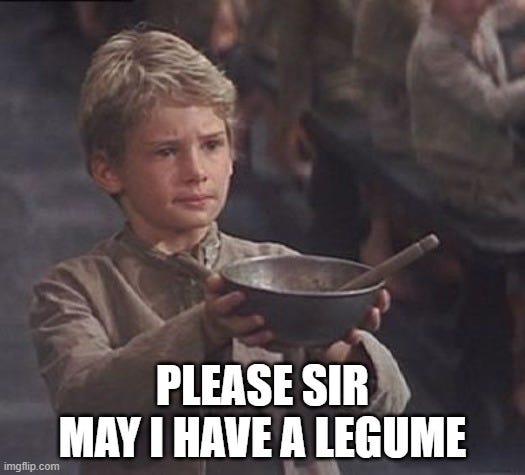
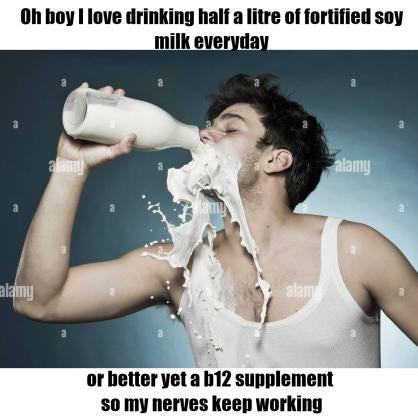
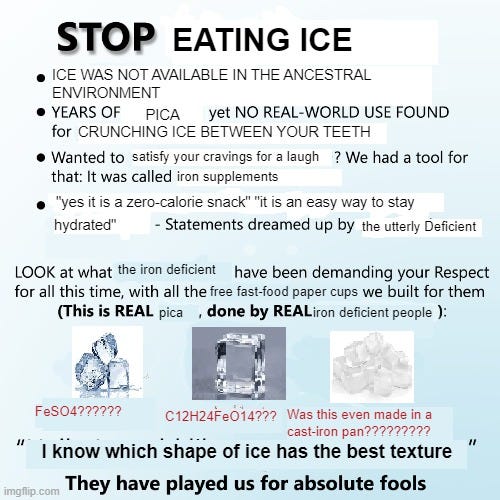

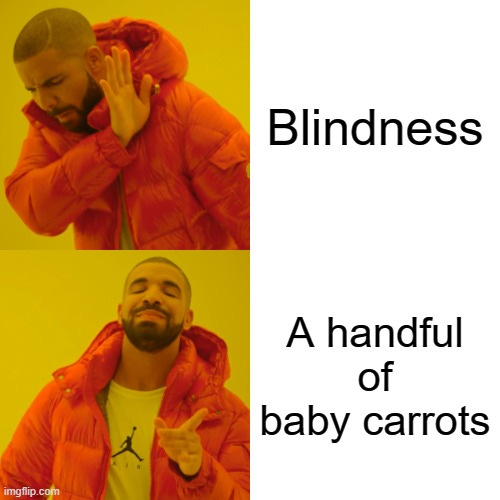
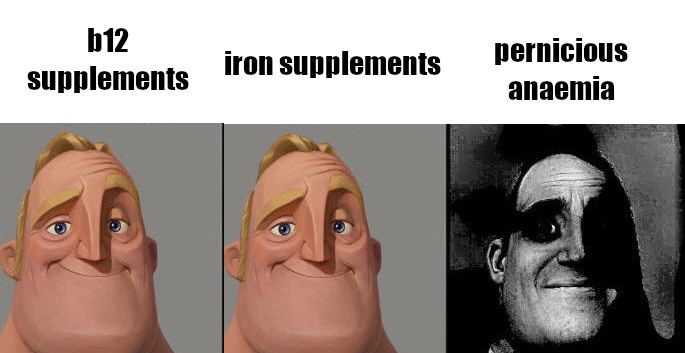



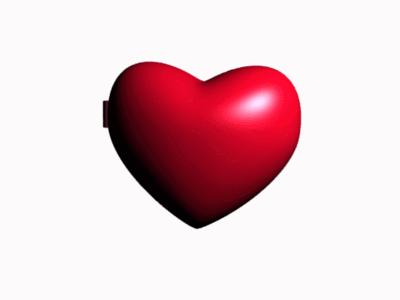
Minor note:
> Lysine-rich foods include [...] seitan
This is sort of true in the sense that seitan is almost pure protein, but as proteins go, seitan is a poor source of lysine because it only has 57% of the recommended amount of lysine per gram of protein (source: https://doi.org/10.1002/fsn3.1809).
Flax and chia are not a sufficient omega-3 source. Specifically, you need omega-3 EPA and DHA supplements. Flax, chia, canola oil and most other vegetable-based sources don't have much in the way of omega-3s usable by the body--it’s all ALA, which converts very inefficiently to EPA and DHA.
The Amazon algae oil supplement you linked is fine; algae oil is basically the only (afaik) vegan source of EPA + DHA.